Technicians break down gender stereotypes
Mobile repair centre owners and entrepreneurs Ashmita, Anjali, and Amrita are economically independent, have gained the trust of the community and are thriving in an industry once perceived as only for men.
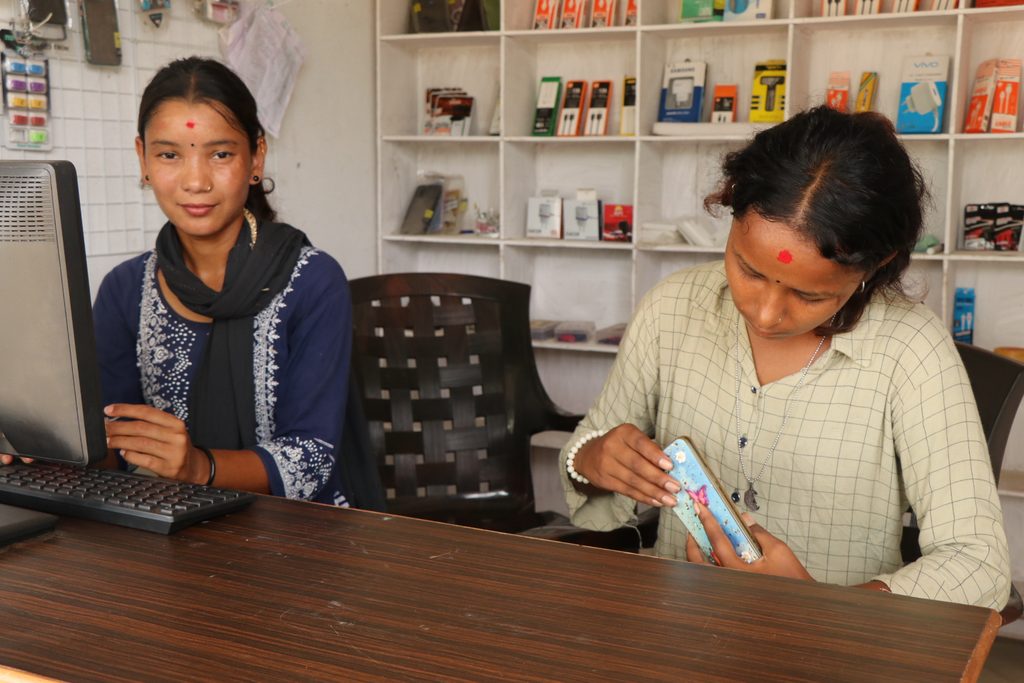
In the heart of rural Nepal, in the province of Lumbini, the shadow of child marriage loomed large over the lives of many young girls. Ashmita, Anjali, and Amrita, all 20 years old, shared a common struggle against deeply rooted traditions, financial hardships, and the looming specter of early marriage. Growing up in rural Nepal, they had witnessed first-hand the pervasive influence of traditional customs, which dictated that girls should not be educated, viewing it as a luxury reserved for boys. For Ashmita, Anjali, and Amrita, school was a distant dream, one they were forced to abandon.
A lifeline of opportunity
Their lives took a transformative turn when they learned about a mobile repair training programme, organised by Plan International Nepal and its implementing partner organisation, BEE Group. This programme was part of the “Girls Get Equal: Preventing Child Early and Forced Marriage” project. Its primary objective was to empower girls and families at high risk of child marriage by strengthening their economic opportunities. Ashmita, Anjali, and Amrita seized this opportunity with unwavering determination, immersing themselves in gender-transformative skills, vocational training, and entrepreneurship workshops, eagerly soaking up every bit of knowledge they could.
Overcoming doubt and changing norms
Undeterred, Ashmita, Anjali, and Amrita persevered. They tackled each repair job with precision and care, determined to show their competence. Slowly, their dedication began to change minds. As they gained experience and expertise, they started building a reputation for reliable service. Their mobile repair shop was a symbol of defiance against entrenched stereotypes. In a place where people had never seen girls providing technical services, the initial response was skepticism and doubt. Customers would often ask, “Where is your owner?” automatically assuming that a man must be in charge, and the girls were merely employees.
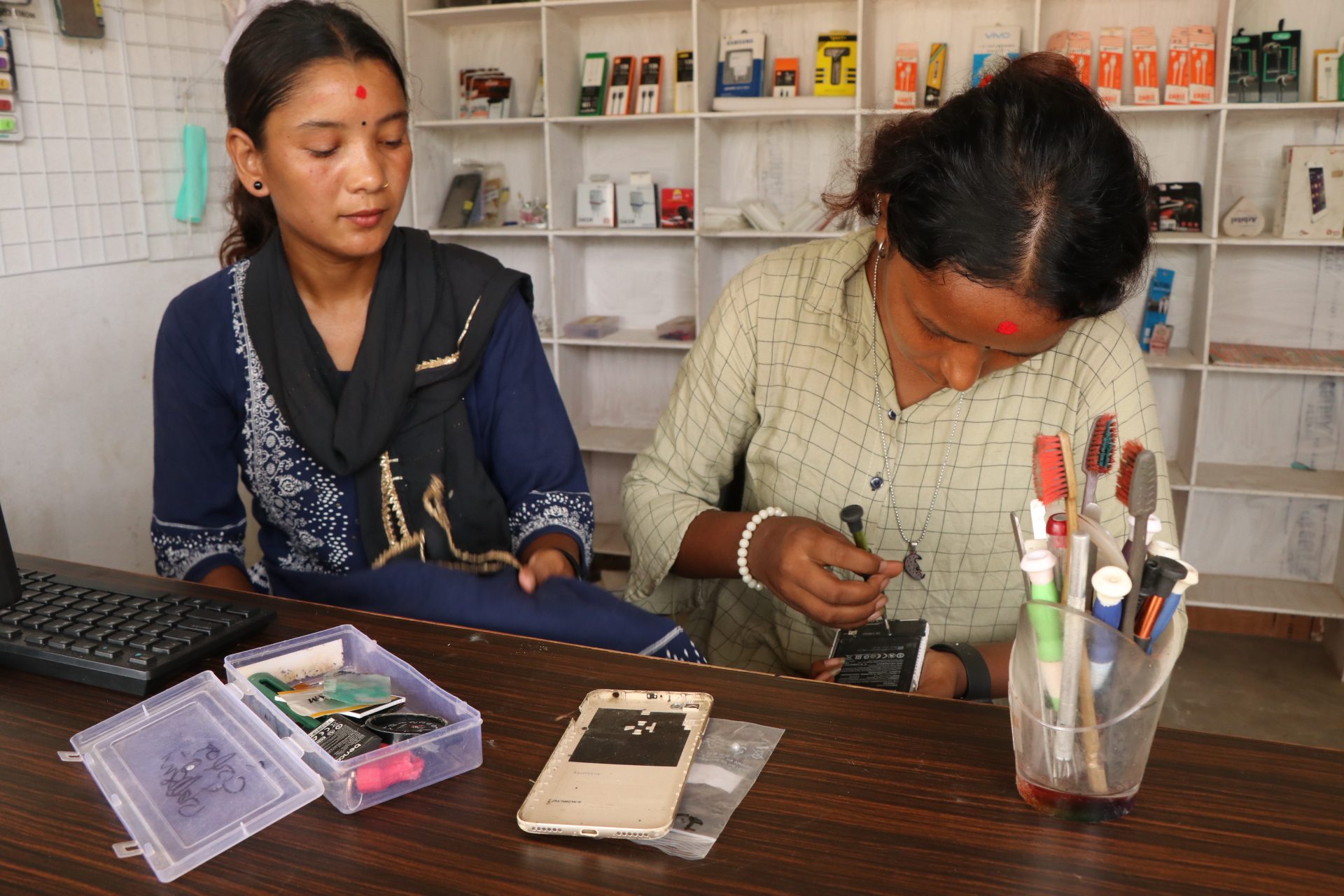
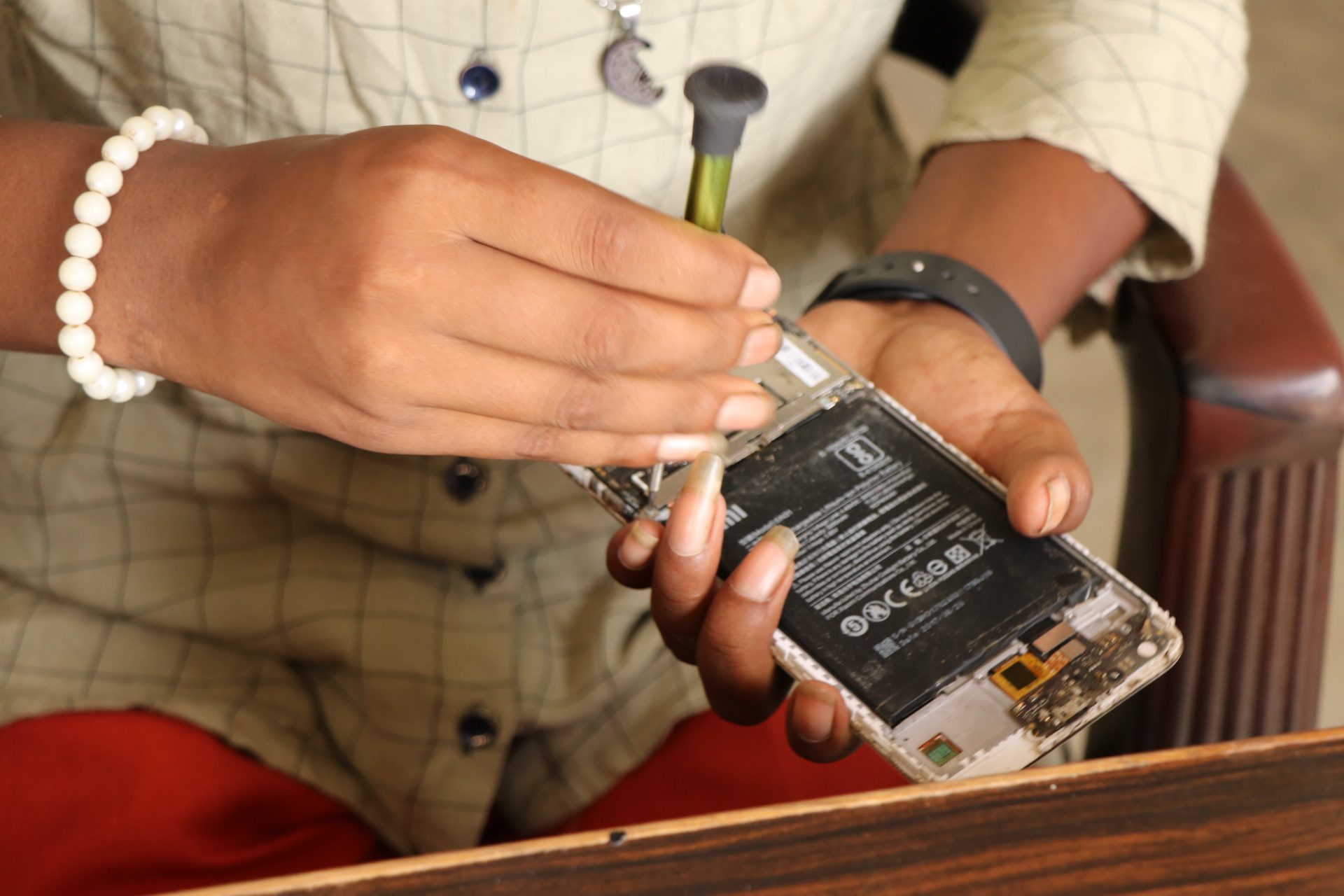

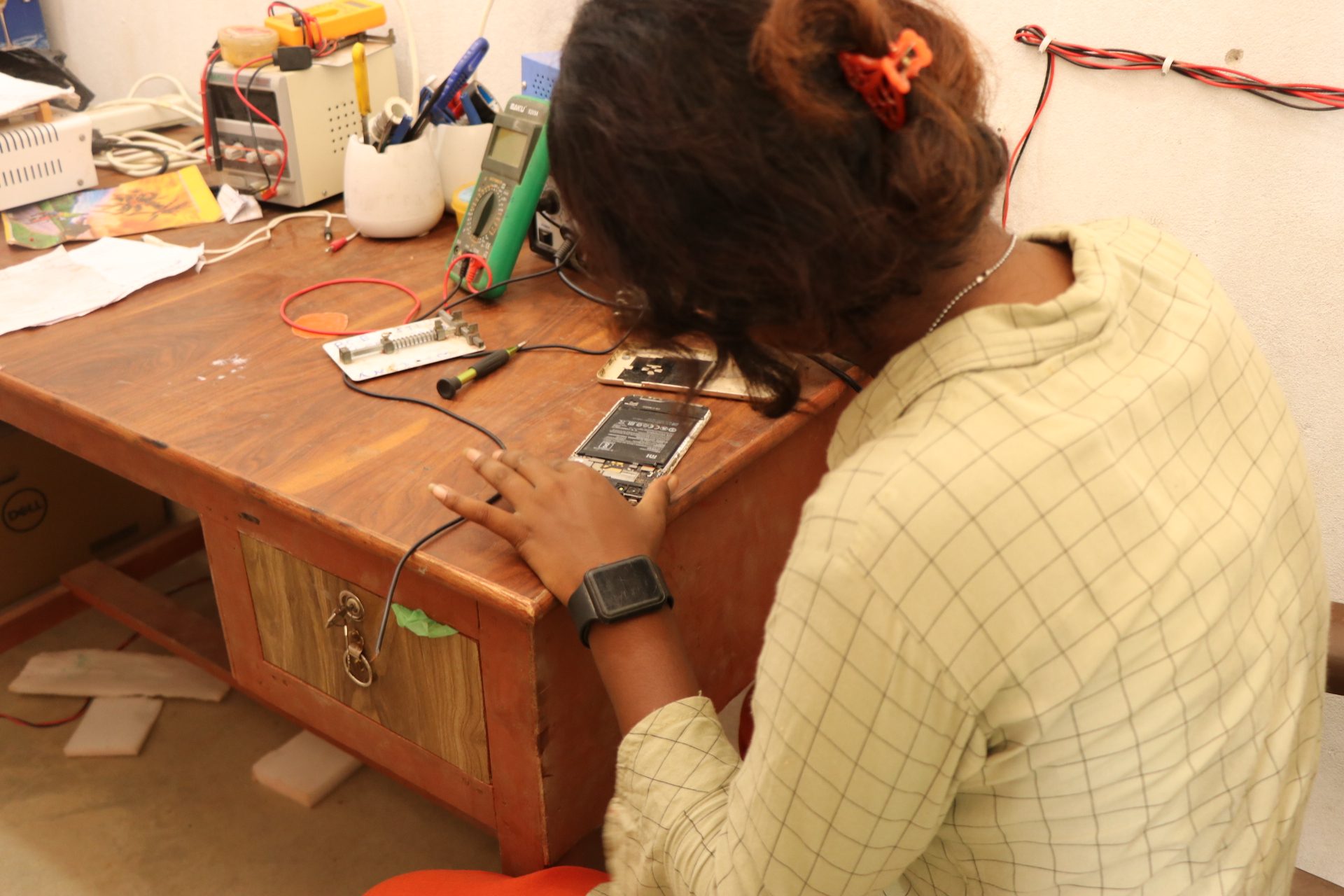
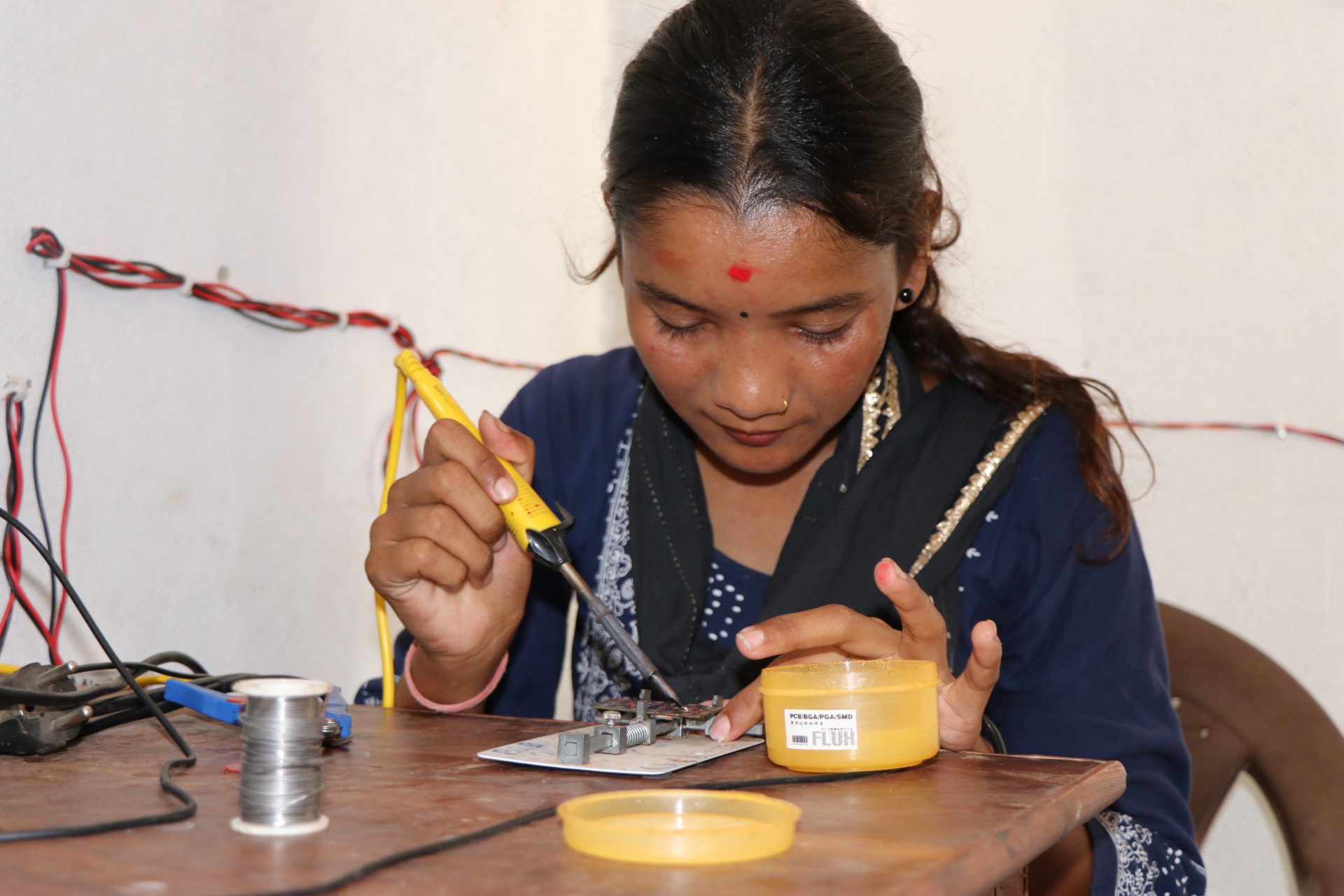
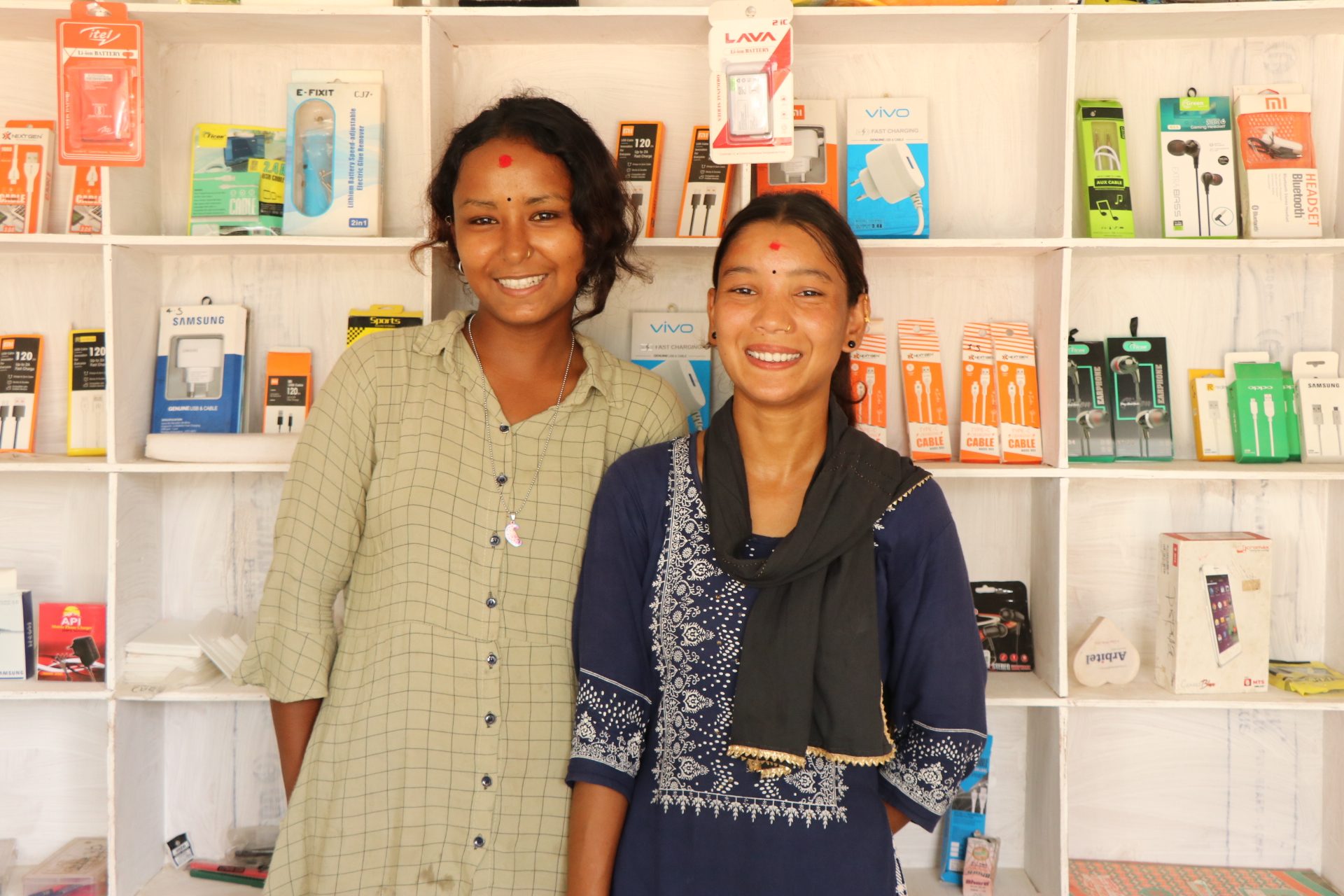
Inspiring transformation and growth
Their hard work paid off, not just in terms of earning a livelihood but also in challenging deeply ingrained gender norms. Now, they had a steady flow of customers, even earning the trust of nearby schools and government offices.
“Over time, people began to recognise us and our skills. They no longer hesitated to come to us for mobile repairs. We’ve even developed strong relationships with nearby schools and government offices, who trust our services,” shares Anjali.
Their mobile repair business was gaining traction, and they were eager to take it to the next level, considering investments in printers and inverters. Their ambition showcased their entrepreneurial spirit and their dedication to continuously improving their livelihoods. Their journey served as a reminder that determination and the pursuit of skills can break the shackles of tradition, and every girl deserves the chance to build her own future.
“Over time, people began to recognise us and our skills. They no longer hesitated to come to us for mobile repairs. We’ve even developed strong relationships with nearby schools and government offices, who trust our services.”
Anjali
A ripple effect of empowerment
Today, as young women who have defied the odds, they continue to inspire change. Their stories serve as a reminder that determination and the pursuit of skills can break the shackles of tradition and that every girl deserves the chance to build her own future. Ashmita, Anjali, and Amrita are living proof that when girls get equal opportunities, they can change the world, one dream at a time. Their journey demonstrated the power of support and determination, inspiring their community to challenge norms and pursue their dreams. Their future held boundless possibilities as they worked to create a brighter, more equitable future for themselves and those around them.
Categories: Skills and work


